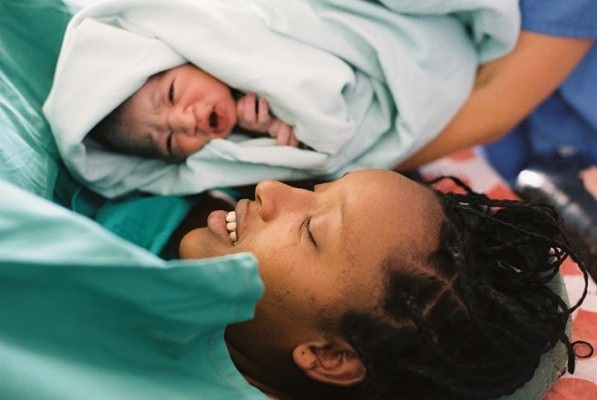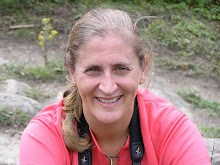March 7th
Regardless of whether you feel termination of pregnancy for "choice" is ethically appropriate, the reality of the situation here in relation to induced abortion is such that it results in serious morbidity and mortality for women.
My (limited) understanding is that termination of pregnancy is legal in Ethiopia but only in the limited circumstances where the pregnancy is serious threat to the health of the mother or where the baby has an abnormality that is lethal or very severe (which is on paper much more limited than in the UK). However although not technically legal termination of pregnancy is undertaken in some "private" medical clinics and Marie Stoppes International also runs some clinics with the law apparently "turning a blind eye" if the procedure is undertaken very early-the problem is that the former charge high fees that many women can't afford and the latter although free or low cost are few and far between.
Unfortunately sex education in schools is at best rudimentary, culturally parents do not tell their children anything (I have heard stories of girl's who thought they were dying when their first menses occurred rather like in Victorian England) and free contraceptive advice although technically supported by the government is not well advertised or widely available. In a society where a "virgin" bride remains prized, falling pregnant outside wedlock is a social disaster with repercussions for mother and child for the rest of their lives. This background sets the scene for two very tangible types of problem for us at the hospital: one sad and difficult and the other tragic and life threatening.
The first issue is that a number of unmarried pregnant women (frequently teenagers) will come to the hospital to deliver each week and then want to have their babies adopted. Sadly adoption is not a common practice in Ethiopian society (men will divorce a woman who appears incapable of bearing children-even though it may be due to a male problem & remarry rather than consider giving a home to someone else's child) so that the only option for true orphans is usually an orphanage of some kind. The maternal mortality rate & low life expectancy for both men and women means that there are plenty of orphans although many will be taken in by the extended family.
Gimbi has a number (about 20) of orphan street boys (from babies through to early teens) who are cared for by one of the big-hearted long-term Faringe (Monica) who has created an orphanage by renting a room for them in the town. She pays someone to ensure that they are fed and receive clothing & basic medical care- I did ask what happened to the girls and was told that they are "taken in" by families and basically become unpaid servants. You see these orphans around and about in the town when you go to the market-they are distinctive as they invariably wear the same T-shirt (donated in batches) and unlike other children they do not ask for money or food as they are taught not to beg. As you are walking down the street you will feel a sticky, grubby hand slip into yours if you leave it dangling free-it is heart rendering that all they want is to walk the street holding hands with a grown-up like other children do all the time and will eventually decide it is time to go their own way without asking for anything more than this human contact. These children all have mother's who died in childbirth at the hospital and have extended families who unusually were unable to support them- the nearest proper orphanage is in Addis but unfortunately there is now a lot of "red-tape" to prevent child trafficking (and underhand practices in procuring children for adoption abroad) which means that it is very difficult to arrange transfer of a child from Gimbi to Addis.
In Ethiopia abandoning a baby is a crime, which is fortunate as otherwise it would be hard to prevent women with social issues leaving their babies with us but they know that attempts to trace them by the police and that this will only make the situation worse. However hard it may seem, the hospital is not an orphanage so we are not able to take the babies from them but there is a system of basic social work to try to help them financially to keep the baby.
The second problem is that "back-street" abortion is very common. We saw a pregnant 17year old yesterday who came to the outpatient clinic bleeding, doubled over with severe abdominal pain and also with a high fever. Initially she claimed she was miscarrying spontaneously but on questioning admitted she had seen a village woman and had undergone a procedure to "bring on" the miscarriage- details beyond this are sketchy as the girl herself was not really sure what had been done. Examination & a scan showed that she had not "miscarried" completely and suggested that there was either a serious infection in her abdomen or that the uterus had been perforated during whatever probably non-sterile "operation" had taken place.
We arranged for her to be admitted for high dose intravenous antibiotics and planned to open her abdomen later in the day to view & repair any damage that had been done (this could be done by a key-hole surgery procedure in the UK but here the only option is to do a large operation). Unfortunately without the knowledge of any of the doctors, she was sent by the ward staff to pay a deposit for her treatment (these sort of procedures are classified as gynaecology and so does not technically get covered by the Safe Birth Fund). We don't know what happened but after a discussion with the cashier about the cost she left the hospital-it is possible that she is younger than 17 and unlikely that her parents know so she has no access to money. The chances that she will survive without medical treatment are slim and certainly if by some miracle she does pull through she will be unlikely to ever fall pregnant again (this is unlikely even if we had been able to treat her). Tracing patients here is very difficult and doing it quickly is almost impossible as we do not have a specific address for them with only the name of the Kebele they come from (a sort of village district) recorded, which for her is about 2-hours from here. Someone has been sent out to her Kebele on the hospital motorcycle this morning to try to find her and bring her back (we can worry about the funding later) but as yet there has been no word- as her condition is "sensitive" enquiry is going to be difficult anyway.
When I was out at the rural clinic in Muggi I took a photograph of a poster that I thought was rather macabre- it is a drawing depicting a young woman undergoing a "bloody" non-specific procedure in a village hut by a older woman in traditional dress with a skeleton "grim reaper" figure looking over her shoulder- the caption read "Backyard abortion-threatens lives". I now realise that such a stark warning is very necessary here.


Hi Leonie,
ReplyDeleteI am coming to Gimbie on 20 March to produce four short videos to illustrate the four main programme areas described in the evaluation report. Your blog is very interesting and helps me build up a clearer picture of Gimbie, and the issues that people are facing. I look forward to meeting you and I hope I have the chance to interview you. I intend to film Tue 23 March-Fri 26 March. My email address is: Christopher.nicholas@westminster-pct.nhs.uk. All the best, Chris